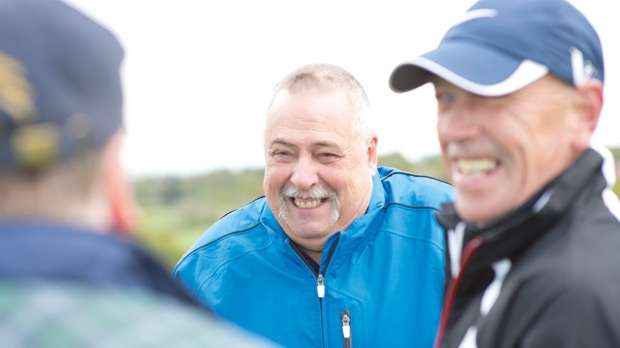Survival three times higher when cancer is diagnosed early

Survival for some of the most common types of cancer is more than three times higher when the disease is diagnosed in the earlier stages, according to new figures published by Cancer Research UK.
The figures show that, for eight common cancers, around 80 per cent of patients survive for at least 10 years when the disease is diagnosed at stage one or two – the earlier stages of the disease. But survival falls to around 25 per cent in patients who are diagnosed at stage three or four. And 10-year survival is more than 90 per cent for those diagnosed at the earliest stage – stage one – compared with just five per cent for those who are diagnosed at stage four.
The cancers included in these new figures are bladder, bowel, breast, cervical, womb, malignant melanoma, ovarian and testicular cancers, which together account for more than 40 per cent of all cancer cases in the UK. For these eight cancers, more than a quarter of cases are diagnosed at stage three and four.
The stage of a cancer is based on how large the tumour is and how far it has spread in the body. One of the main reasons that early diagnosis improves survival is that more treatment options are available to patients when the disease is in its early stages and they are more effective. And a previous report from Cancer Research UK also shows that it costs significantly less to treat patients who are diagnosed with early-stage cancers.
Sara Hiom, Cancer Research UK's director of early diagnosis, said: "These figures show the prize on offer if we can diagnose more cancers earlier. And, if the Government acts on the recommendations in the new cancer strategy, we can increase the number of people diagnosed at an early stage across all cancer types – from around half of patients now to more than 60 per cent by 2020 – improving the outlook for thousands of people with the disease.
"Thanks to research, cancer survival has doubled in the last 40 years. But one in two people will be diagnosed with the disease at some point in their lives. Early diagnosis and ensuring patients have access to the best treatment is essential to further improving survival from cancer. We need increased funding in NHS services and more research to develop tests to spot cancer sooner, and help more people to beat the disease."
Dr Richard Roope, Cancer Research UK's GP expert, said: "Diagnosing cancer early isn't always easy – the symptoms may be vague or similar to less serious conditions, so cancer isn't always the first thing you or your doctor considers. It's important that people are aware of their bodies and, if they notice any unusual or persistent changes, they should see their GP.
"GPs play a critical role in early diagnosis; knowing when symptoms need to be investigated and referring patients promptly for tests – as well as making sure patients get test results quickly. The new cancer strategy, along with the recently-updated NICE referral guidelines for suspected cancer, will result in earlier referral to a specialist, and will contribute to a higher proportion of patients with cancer being diagnosed at an earlier stage with more favourable results."
More information: "Saving lives, averting costs: An analysis of the financial implications of achieving earlier diagnosis of colorectal, lung and ovarian cancer." www.incisivehealth.com/uploads/Saving%20lives%20averting%20costs.pdf


















